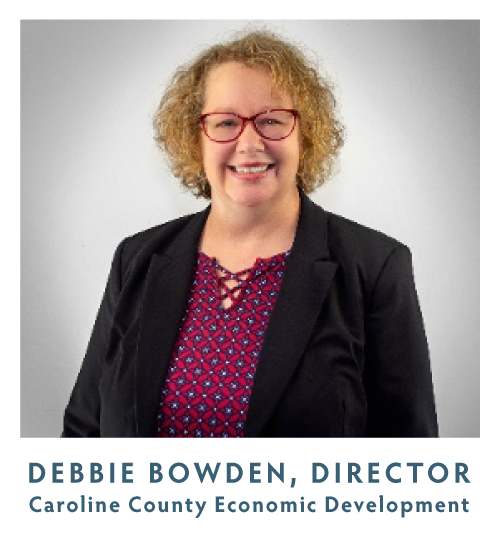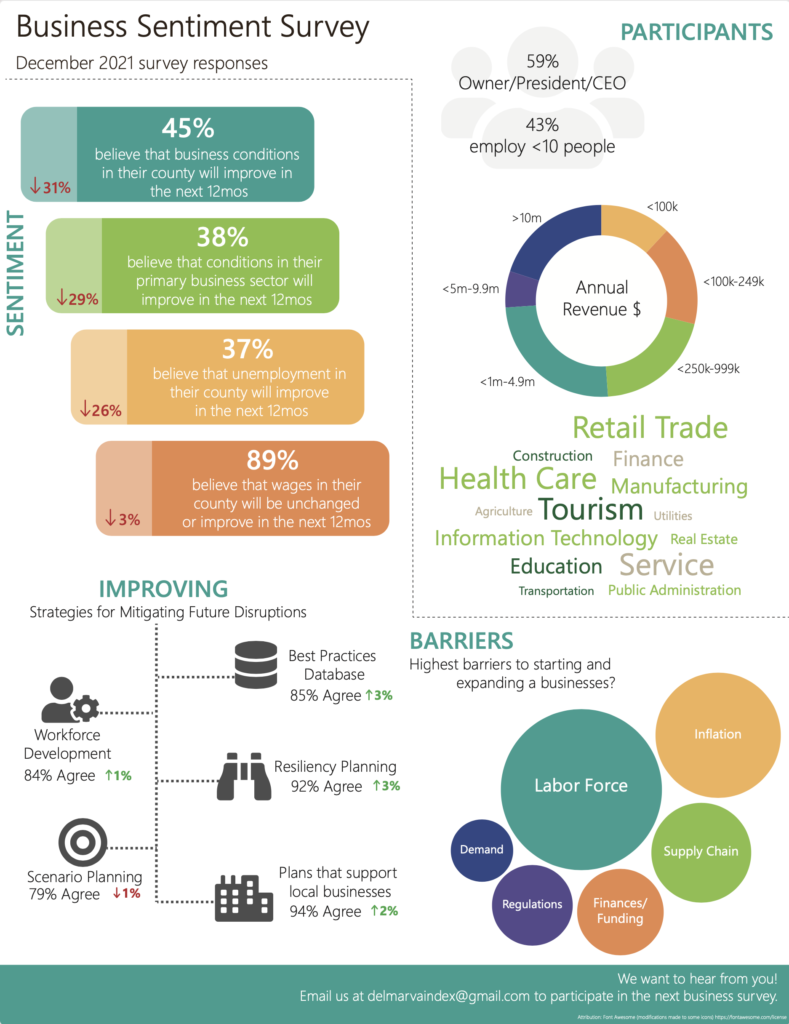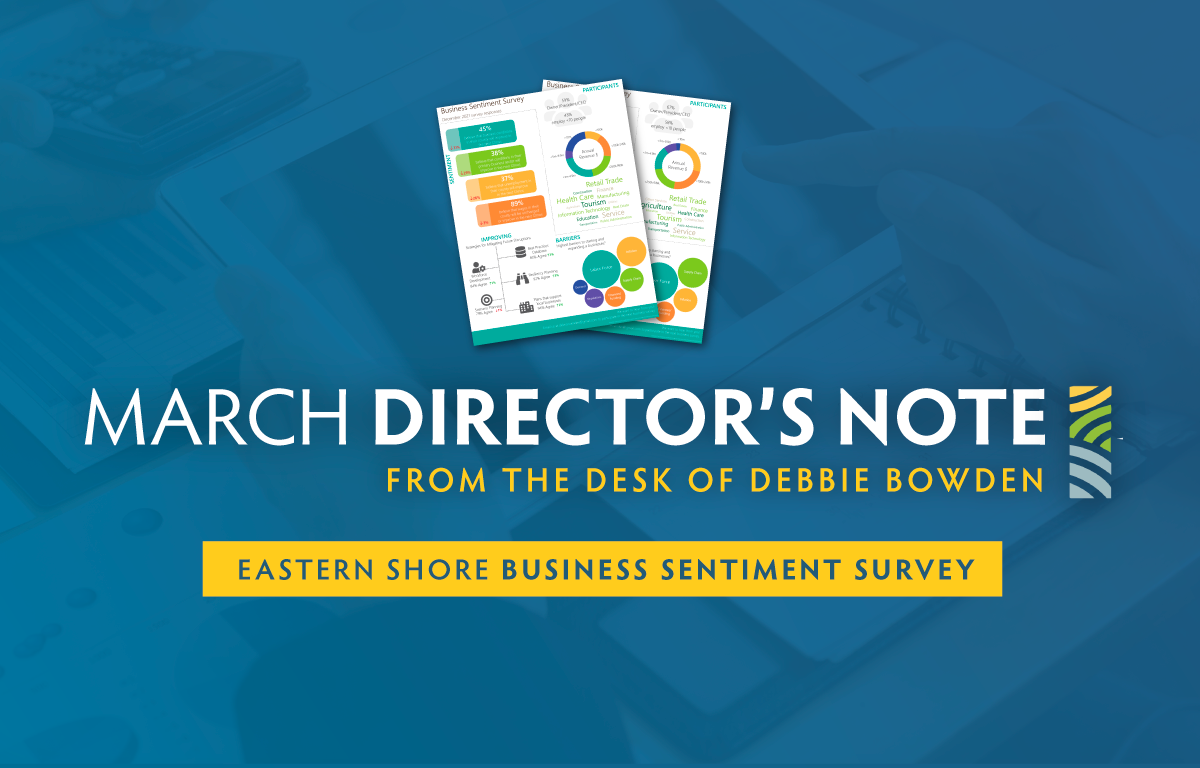
This month, I want to share an article from Salisbury University on a Business Sentiment Survey results. I hope you find the information interesting.
Eastern Shore business owners and managers are optimistic about the economic outlook over the next 12 months, though their enthusiasm has waned over the past six months.
These trends are among the findings of the Eastern Shore Business Sentiment Survey conducted through a partnership with Salisbury University’s Business Economic and Community Outreach Network (BEACON), SU’s Eastern Shore Regional GIS Cooperative (ESRGC), and many of the region’s economic and workforce development professionals.
“A business sentiment survey is an effective way to gauge the health of the Eastern Shore economy,” said John Hickman, BEACON director. “When business leaders are optimistic, the economy is likely performing well. If survey respondents are more pessimistic in their views, storm clouds could be gathering on the economic horizon.”
BEACON and its partners released the first survey in June 2021 and conducted a follow-up in December 2021.
The survey included more than 50 questions, asking business leaders to weigh in on a range of topics, from general business concerns to conditions in their own industries. Respondents evaluated business conditions locally, regionally, in the state and nationwide for the coming year. They also shared views related to their specific industries and on issues from labor supply to regulations.

Results include:
- Respondents in December were optimistic about business conditions over the next 12 months, with 45% predicting better or much better conditions locally and on the Eastern Shore, and 42% expecting better conditions in Maryland and nationally. Only 19% predicted worse or much worse conditions locally, though 29% saw conditions worsening statewide and nationally.
- Reflecting on their individual industry sectors, respondents shared that conditions improved in the past 12 months. However, they were cautious about conditions in the next three-month period, with increasing optimism for the next 12-month period.
- Respondents indicated that COVID-19 had caused new problems for businesses and has exacerbated existing problems, particularly related to workforce, a response that reflects national trends.
- Concerns about inflation have grown in the past six months, overtaking supply chain issues. Labor force issues remain atop the list of barriers to both starting and expanding a business.
Businesses remain supportive of the range of tools that economic development offices have deployed, ranging from long-term economic resiliency plans to workforce development programs, with 85-95% of respondents supporting the continuation of the programs after COVID-19.
“The most interesting outcome of the December survey is how quickly things change in business,” said Debbie Bowden, Caroline County economic development director. “The responses confirm what I am hearing about the impact of inflationary pressures on current and future business conditions. This just shows that we have to be agile with our support for our county businesses.”
Counties on the Eastern Shore will continue to conduct the survey every six months, with the data used to identify challenges facing the region, to assist in long-term planning and to guide the development of public policy.
Partners in the project include ESRGC, BEACON, the Mid Shore Regional Council, the Tri County Council of the Lower Eastern Shore, the Lower Shore Workforce Alliance, the Upper Shore Workforce Investment Board, and the Caroline, Dorchester, and Talbot County economic development offices.
To access Eastern Shore Economic Recovery Project data, visit recovery.delmarvaindex.org.

